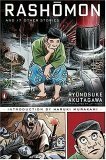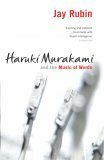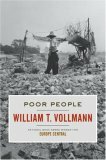Charlie Stross has posted a long-ish piece with some great thought on why the commercial ebook market is failing and why he believes it continue to fail for the forseeable future.
He points to several core problems:
- lack of inexpensive ereader hardware
- crippling DRM
- insane pricing
While I agree with those points, I have issues when he calls hogwash on the “hardware problem.” Stross misappropriates a most-excellent piece by Cory Doctorow to make the point that we already spend a lot of our time reading off all sorts of computer, PDA, mobile screens. That’s true, but it misses a wide swath of what people actually read. What Cory takes the time to explain in that article is that these form factors we’re using have drastically altered the forms of the content and thereby what he calls the “cognitive style” of engaging with them. I’m not reading “The Adventures of Huck Finn” on my phone and neither are you, even though it’s part of the public domain and avaiable for free.
I don’t cook turkey in my bed and I don’t read novels in my office. We have not created a compelling digital device for reading long-form narratives in the normal places we are used to doing so. You techno-geeks might think that taking a laptop to read in bed is the same thing as a book, but it’s not. A book doesn’t wake you up to the smell of searing flesh (well, mine don’t) nor does it cause as many incendiary concerns. Don’t fool yourselves, most people want a high-contrast, light-weight device which is not their PDA or mobile phone. Hell, if you really want the idea to take off, make an ereader that’s bathtub safe. You give me a compelling hardware offering that gets me close enough to the natural experience of reading and I’m all there. A good reader is definitely a core piece of the puzzle that is missing.
To date, the Sony ereader is the best hardware I have seen. It has the contrast, the battery life, the storage, and the form factor, but it suffers from a high-price tag, zero compatibility with my personal computers (Macintoshes), and an expensive ebook store. But kudos on that device Sony, it’s the first one I’d use if everything else about it didn’t suck.
I don’t think getting all the factors right for a successful ebook offering is as far away as Stross thinks, though. Time will tell. My bet is that the first really successful hardware device will come from a major bookseller (or major media outlet), someone capable of playing hard-ball with publishers, just like Apple did when it single-handedly consolidated and grew the digital music market with iTunes. I could picture “The New York Times” selling an ereader pre-loaded with subscriptions (and/or the top 10 bestsellers from their infamous list). Barnes and Noble could packaging an ereader with “The Top 100 Public Domain Classic Novels.” It would show their customers that they’re reading enthusiasts, environmentally conscious, and hip to the fact that you have lots of choices on where you can get your books. I think we’ll see some major title in this direction within the next couple of years.
My favorite part of Stross’s article, and the part I truly believe keep many digital texts from being made available, is when he explores the outlandishness of the piracy concerns:
[…] the […] problem the publishing industry has with ebooks is their misapprehension of exactly what the “pirate” ebook field is costing them. Some otherwise fairly intelligent folks in the SFWAs anti-piracy committee think they’re potentially costing up to 30% of their revenue stream. I’d like to call bullshit on that.
There’s a figure I’ve heard quoted (unfortunately I don’t know the source so I can’t cite you chapter and verse on it) to the effect that the typical dead-tree book has, over its life cycle, an average of four readers. Moreover, sell-through in paper is around 50-60%; that is, for every book sold to a customer, 0.8 to 1.0 other books end up being returned or pulped. So the real figure is more like ten readers per book actually printed by the publisher.
Think about that. Today, publishers try like crazy to tie ebooks to a single reader via DRM, in their misplaced zeal to reduce profit leakage; but for the economic hit from piracy to equal the economic hit from libraries and second-hand bookstores and friends lending friends books, the unlicensed distribution channels would have to be shifting nine ebooks for every one that is sold commercially.
Publishers are insane if they believe that every pirated copy is a lost sale. They need to be smarter than that. Not only that, they need to be more environmentally conscious than that. The current publishing system produces an extraordinary amount of waste. People will latch onto digital texts and readers if they can be made available at a reasonable price, not cobbled with atrocious DRM, and fit into their casual reading habits. This could start happening this year is somebody starts listening to their customers.










